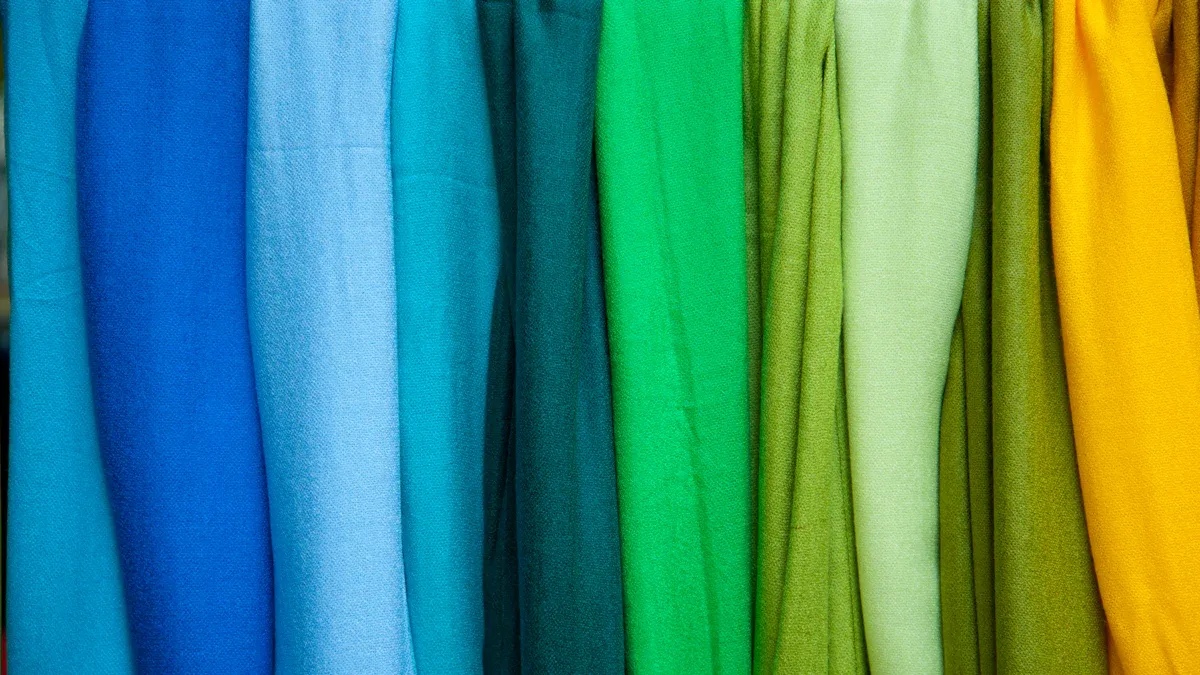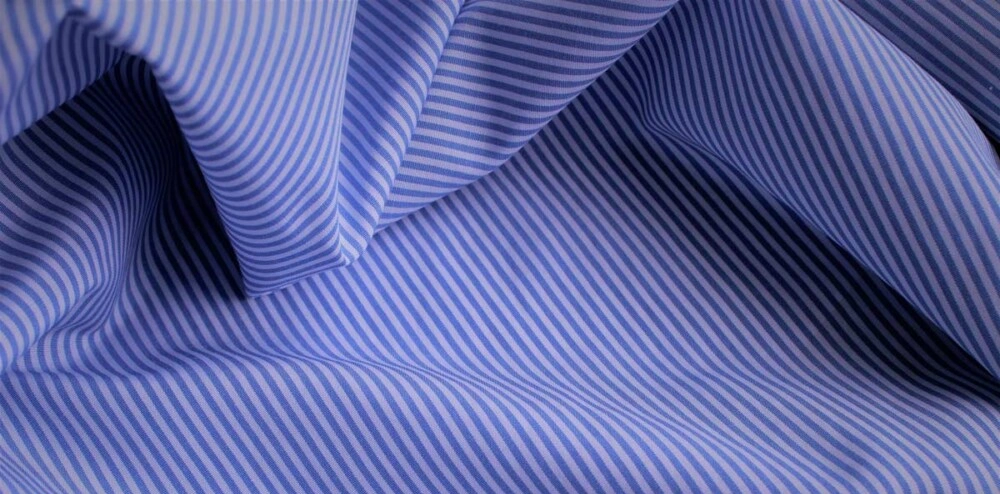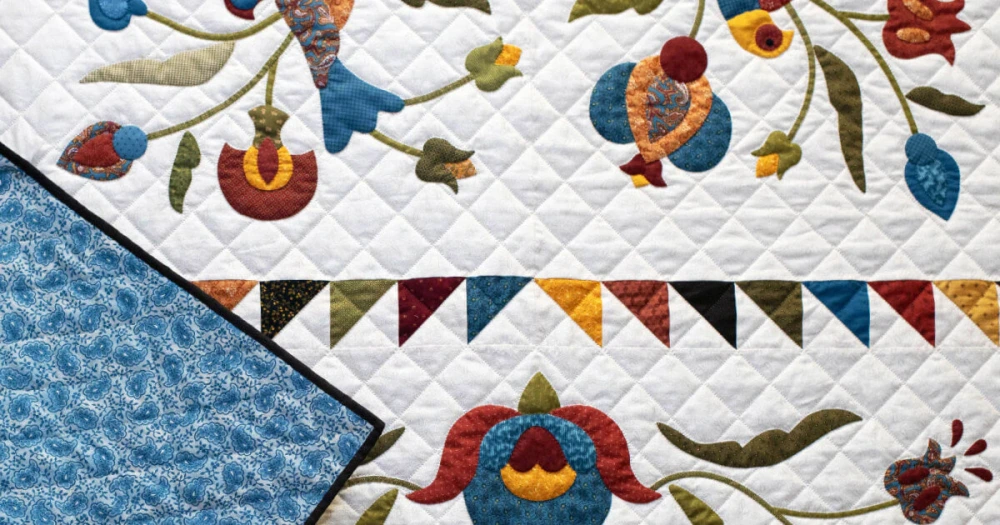
If you want the best fabric for quilting, you’ll find cotton poplin stands out for its structure and durability. At Fanda Fabrics, you can choose both cotton lawn and cotton poplin, but poplin’s crisp finish and easy handling often make it the top pick for quilts.
Cotton lawn brings a silky drape and soft, luxurious feel—perfect for summer bedding or a delicate dress quilt. As you explore cotton lawn vs cotton poplin, think about the look and feel you want for your project. Your fabric choice shapes your quilt’s personality!
Key Takeaways
Cotton poplin is strong, easy to sew, and keeps quilts looking sharp and lasting longer.
Cotton lawn feels soft and silky, perfect for light, delicate quilts with a vintage look.
Always prewash your fabric to prevent shrinking and keep your quilt size stable.
Use the right needle size: finer needles for lawn and slightly larger ones for poplin.
Choose poplin for bold, structured quilts and lawn for soft, flowing designs.
Quick Comparison
Choosing between cotton lawn and poplin for your next quilt can feel tricky, but a quick side-by-side look makes it easier. Here’s a handy table to help you compare these two fabric types:
Feature | ||
|---|---|---|
Weight & Weave | Lightweight, fine plain weave | Medium weight, tight plain weave |
Texture & Feel | Silky, smooth, soft, slightly sheer | Crisp, smooth, slightly ribbed |
Durability | Delicate but stable | Strong, holds shape well |
Ease of Sewing | Easy, needs finer needle (size 70) | Very easy, stable, forgiving (size 80) |
Finished Look | Soft, flowing, vintage, or delicate | Structured, crisp, clean lines |
Weight & Weave
You’ll notice right away that cotton lawn feels lighter than poplin. Lawn uses a fine, plain weave, which gives it that airy, almost see-through quality. Poplin, on the other hand, has a tighter weave and a bit more weight.
This makes poplin a favorite when you want your quilt to feel sturdy and last a long time. Both fabric types are 100% cotton, so you get breathability and comfort no matter which you choose.
Texture & Feel
If you love a silky, soft touch, lawn will win you over. It feels smooth and gentle, almost like a luxury dress fabric. Poplin feels crisp and has a subtle ribbed texture. It’s not rough, but it does feel more structured. Many quilters say poplin gives a polished, professional look, while lawn brings a soft, vintage vibe to your quilt or dress.
Durability
Poplin stands out for its strength. It holds up well to repeated washing and daily use. Lawn is stable but a bit more delicate, so it’s best for quilts that won’t see heavy wear. If you want a quilt that lasts for years, poplin is a smart pick. For a special occasion quilt or a lightweight summer dress, lawn is a lovely choice.
Ease of Sewing
Both fabrics are beginner-friendly, but you’ll find poplin especially easy to handle. It’s stable, doesn’t slip much, and forgives small mistakes. Lawn is also easy to sew, but it’s a bit more delicate.
You’ll want to use a finer needle (size 70) for lawn and a slightly larger one (size 80) for poplin. Many quilters say poplin is perfect for learning, while lawn feels manageable if you take your time.
Finished Look
The final look of your quilt depends a lot on your fabric choice. Lawn gives quilts a soft, flowing, and sometimes vintage appearance. It drapes beautifully and works well for delicate or background areas.
Poplin creates crisp, structured quilts with sharp lines—great for bold patterns or modern designs. If you want your quilt to look polished and hold its shape, poplin is the way to go. For a softer, more delicate finish, lawn shines.
Tip: If you’re making a dress quilt or want a fabric that feels like your favorite summer dress, try lawn. For a quilt that needs to be tough and tidy, poplin is your best friend.
Cotton Poplin

Features
When you pick up cotton poplin, you’ll notice how smooth and crisp it feels. This fabric stands out because of its tight, plain weave and subtle ribbed texture. You get a material that’s light but strong, perfect for projects that need both comfort and durability. Here’s a quick look at what makes cotton poplin unique:
Characteristic | Description |
|---|---|
Weave Structure | Plain weave with fine crosswise ribbed texture; tight, light yet strong |
Texture | Smooth, crisp, silky surface with a soft drape; structured without stiffness |
Weight | Lightweight, typically between 90-130 g/m² |
Durability | High durability; strong and resistant to everyday wear |
Wrinkle Resistance | Resists creasing better than other cottons; easy to iron or steam |
Breathability | Good breathability, slightly less than standard cotton |
Drape | Holds shape with a crisp, structured drape without stiffness |
Comfort | Comfortable and smooth, suitable for sensitive skin |
Dyeing & Appearance | Takes dye well; prints appear sharp and clear |
Applications | Versatile use in shirts, dresses, uniforms, home textiles, lightweight jackets, and children’s clothes |
Care Instructions | Machine washable at 30°C, easy to iron at low temperature, minimal shrinkage |
Fiber Blends | Available as 100% cotton or blended with polyester, elastane, silk, wool, or linen |
Fanda Fabrics Poplin
You’ll find that Fanda Fabrics’ poplin takes these qualities even further. Here’s what sets it apart from other cotton fabrics:
Uses a tightly woven plain weave with fine yarns for a smooth, lightweight finish.
Offers a crisp hand feel and a polished surface.
Stays wrinkle-resistant, so your projects look neat with less effort.
Works well for dress shirts, blouses, and summer garments, but also shines in quilting.
Blends practicality and style, giving you comfort and elegance in one fabric.
Known for versatility and ease of care, making it a favorite for many sewing projects.
If you want a fabric that combines durability with a touch of elegance, Fanda Fabrics’ light-weight cotton poplin is a smart choice.
Quilting Benefits
When you use cotton poplin for quilting, you get a lot of advantages:
The dense, tightly woven structure makes your quilts last longer and helps them keep their shape.
You’ll love the crisp, smooth texture and subtle ribbing, which give quilts a modern, structured look—great for bold or geometric designs.
Poplin is easy to sew and doesn’t stretch much, so you get crisp seams and sharp lines.
It holds color well and needs less shrinkage management, so your finished quilt stays vibrant.
You can mix poplin with other cotton fabrics to add texture and dimension, as long as you prewash and finish seams carefully.
If you want your quilt to look sharp, last for years, and feel comfortable, cotton poplin is a fantastic pick.
Cotton Lawn
Features
If you’re looking for a fabric that feels soft, smooth, and almost airy, cotton lawn is a great choice. This fabric stands out because it’s lightweight, finely woven, and has a crisp yet gentle touch.
You’ll notice how breathable it feels, making it perfect for warm-weather projects or quilts that need a delicate finish. Here’s what you can expect from cotton lawn:
Lightweight and easy to handle
Made from high-quality cotton, giving it a smooth and soft surface
Crisp enough to hold its shape, but still drapes beautifully
Breathable and comfortable, even on hot days
Takes dye well, so colors look vibrant and last a long time
You’ll often see lawn used for summer dresses, blouses, and even high-end fashion. Its fine weave and elegant drape make it a favorite for both casual and formal projects.
Fanda Fabrics Lawn
Fanda Fabrics takes cotton lawn to the next level. You get a fabric that blends traditional Chinese craftsmanship with modern innovation. Fanda Fabrics uses advanced weaving and finishing techniques, including a special mercerizing process.
This gives the lawn extra gloss and softness. Every yard goes through strict quality checks, so you know you’re getting a reliable product.
What makes Fanda Fabrics’ lawn special?
High thread count and fine yarns for a silky, crisp feel
Breathable and moisture-wicking, so your quilts stay comfortable
Durable enough for repeated use, with eco-friendly options available
Beautiful colors and patterns that inspire creativity
If you want a fabric that’s both beautiful and dependable, Fanda Fabrics’ cotton lawn is a smart pick for your next quilt.
Quilting Pros & Cons
When you use cotton lawn for quilting, you’ll notice some unique benefits and a few things to watch out for:
Tip: Cotton lawn is perfect for adding a soft, flowing touch to your quilt, especially if you love a vintage or delicate look.
Pros:
Finer and lighter than traditional quilting cotton, so your quilt feels soft and drapes well
Silky, smooth finish makes hand quilting a breeze
Great for backgrounds or small areas where you want a gentle touch
Cons:
Lawn can be slippery to cut and may stretch more than regular quilting cotton
You might need extra pins or a bit of starch to keep pieces in place
Best for quilts that won’t see heavy use, or for adding delicate details
If you mix lawn with other cotton fabrics, remember to prewash and use stabilizers to keep everything even. With a little care, you can create a quilt that feels light, elegant, and truly special.
Cotton Lawn vs Cotton Poplin
Cutting & Piecing
When you start a quilting project, the way your fabric behaves during cutting and piecing can make a big difference. With cotton lawn vs cotton poplin, you’ll notice some clear contrasts right away. Cotton lawn feels silky and light, almost like a whisper between your fingers.
This makes it a bit more delicate when you cut it. You might find that it slips around on your cutting mat, so you’ll want to use extra pins or even a bit of tissue paper underneath to keep things steady. Many quilters like to cut several layers of cotton lawn at once with a rotary cutter, but you need to handle it gently to avoid shifting.
On the other hand, poplin brings a crisp, stable feel. It holds its shape well and doesn’t slide as much, so you can cut and piece with confidence. You’ll find that poplin’s subtle rib texture gives you a bit more grip, making it easier to line up your pieces.
When you sew, cotton lawn works best with a shorter stitch length—this helps prevent puckering and keeps your seams neat. Poplin, being sturdier, lets you use a slightly longer stitch and still get sharp, clean lines.
Here’s a quick tip:
If you want to try intricate piecing or curved seams, cotton lawn’s pliability is a real advantage. Just remember to use a fine needle and take your time. For straight, bold blocks, poplin’s stability makes the process smooth and frustration-free.
Durability in Quilts
Durability is a big deal when you’re making a quilt that you hope will last for years. With cotton lawn vs cotton poplin, you get two different experiences. Cotton lawn feels soft and luxurious, but its lightweight nature means it’s best for quilts that won’t see heavy use.
If you’re making a decorative quilt, a summer throw, or something for a special occasion, cotton lawn adds a gentle touch that feels amazing.
Poplin, though, is built for strength. Its tight weave and medium weight help your quilt stand up to daily life—washing, folding, and even a little roughhousing. You won’t have to worry as much about fraying or stretching out of shape.
Poplin’s durability makes it a favorite for family quilts, kids’ bedding, or anything you want to keep looking sharp over time.
If you’re mixing fabrics, keep in mind that cotton lawn may need a stabilizer or careful batting choice to avoid showing through or wearing out faster than poplin. Always prewash both fabrics to minimize shrinkage and keep your quilt looking its best.
Finished Quilt Appearance
The final look of your quilt depends a lot on your fabric choice. With cotton lawn vs cotton poplin, you get two very different styles. Cotton lawn gives your quilt a soft, flowing drape. It’s perfect if you love a vintage, airy, or romantic look.
The fabric’s slight sheen and gentle hand make colors look luminous and patterns feel delicate. You’ll notice that quilts made with cotton lawn seem to float and move with ease.
Poplin, in contrast, creates a quilt with crisp lines and a structured finish. If you want your quilt blocks to look sharp and your patterns to pop, poplin is the way to go.
The fabric holds its shape, so your quilt will look tidy and professional, even after lots of use. Colors appear bold and prints stay clear, giving your finished project a polished, modern vibe.
Think about the mood you want for your quilt. If you dream of something soft and elegant, cotton lawn delivers. If you want a quilt that’s bold, structured, and built to last, poplin is your best bet.
Choosing between cotton lawn vs cotton poplin really comes down to your project goals. Both fabrics offer unique benefits, and with Fanda Fabrics’ high-quality options, you can trust that your quilt will turn out beautifully—no matter which one you pick.
Quilting Tips

Pre-washing
Before you start cutting or piecing, always prewash your cotton fabrics. This step helps remove any sizing and ensures that any shrinkage happens before you sew. Here’s a simple routine you can follow, which works well for both cotton lawn and cotton poplin:
Wash your fabric in cold water using a mild detergent.
Skip the fabric softener to keep the fibers clean.
Dry the fabric flat or tumble dry on low heat.
Iron the fabric once it’s dry. This makes cutting much easier and more precise.
Prewashing is especially important if you’re making a baby quilt or a keepsake. You want your finished quilt to stay the same size and feel soft for years.
Needle & Thread
Choosing the right needle makes a big difference when quilting with cotton lawn or poplin. Here’s a quick guide:
Fabric Type | Recommended Needle Size |
|---|---|
Cotton lawn | 10/70 or 11/75 |
Cotton poplin | 12/80 |
A universal needle works well for both types. For the thread, pick a thin but strong cotton thread, like a 50-weight mercerized cotton. This helps your stitches look neat and reduces lint in your machine.
Handling Advice
When you’re sewing with poplin, you’ll notice how stable and crisp the fabric feels. It holds its shape and resists wrinkles, so you get sharp, clean lines in your quilt. Cotton lawn feels lighter and a bit more delicate, so handle it gently. Use a patchwork presser foot if you have one—this helps you keep a perfect 1/4″ seam allowance.
Iron your fabric while it’s still a little damp for the smoothest finish. Take your time, and you’ll find both fabrics easy to work with and rewarding to quilt.
Tip: Always prewash, press, and use the right needle for your fabric. These small steps make your quilting experience smoother and your finished quilt even more beautiful.
Conclusion
You want your quilt to look great and last. Most experts agree that cotton poplin is the best choice for quilting because it is sturdy, easy to sew, and holds its shape. Cotton lawn feels silky and light, perfect for delicate or vintage quilts. Here’s a quick look at the differences:
Fabric Type | Feel & Weight | Best For |
|---|---|---|
Cotton Lawn | Silky, lightweight | Soft, airy quilts |
Cotton Poplin | Crisp, medium weight | Durable, bold quilts |
Fanda Fabrics offers a huge range of quilting cottons and bundles. Pick the fabric that matches your project style and how you want your quilt to feel.
FAQ
What is the main difference between cotton lawn and cotton poplin for quilting?
You’ll notice cotton lawn feels lighter and softer, while cotton poplin gives you more structure and durability. Poplin works best for quilts that need to last. Lawn adds a delicate, airy touch to your project.
Can I mix cotton lawn and cotton poplin in one quilt?
Yes, you can! Just remember to prewash both fabrics. Poplin adds strength, and lawn brings softness. Use stabilizers if you want everything to stay even. Mixing them can give your quilt a unique texture.
Is cotton poplin good for beginners?
Absolutely! Cotton poplin is easy to cut and sew. It doesn’t slip much, so you’ll find it forgiving if you’re just starting. You’ll get crisp seams and a neat finish, even on your first try.
Can I use these fabrics for clothing as well as quilting?
Yes, you can use both cotton lawn and cotton poplin for clothing. Lawn feels soft and cool, perfect for summer shirts or dresses. Poplin gives you a crisp look, great for structured garments like blouses or pants.
How should I care for my finished quilt?
Wash your quilt in cold water with a gentle detergent. Tumble dry on low or air dry flat. Iron on a low setting if needed. This routine keeps your quilt looking fresh and helps it last longer.
